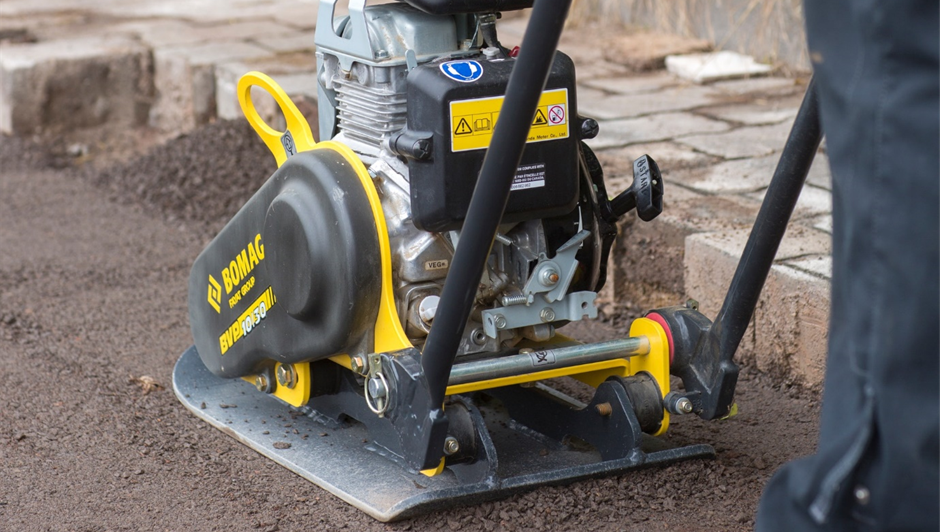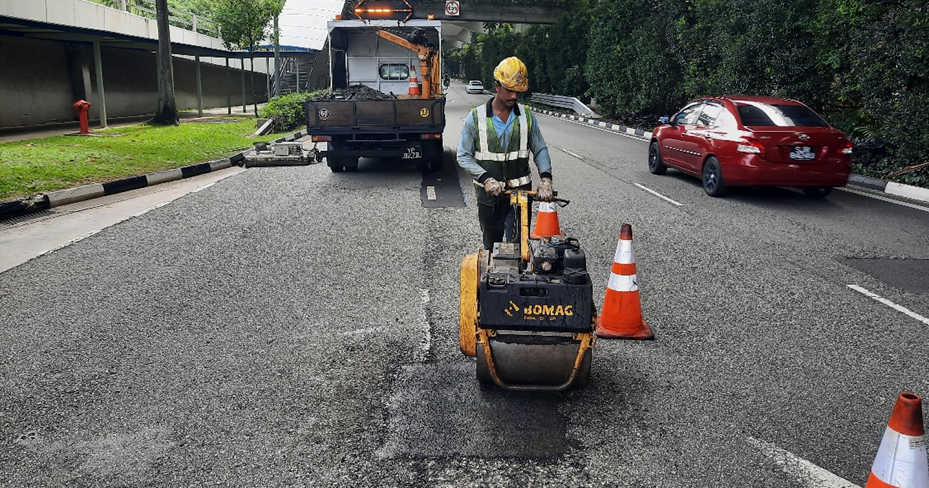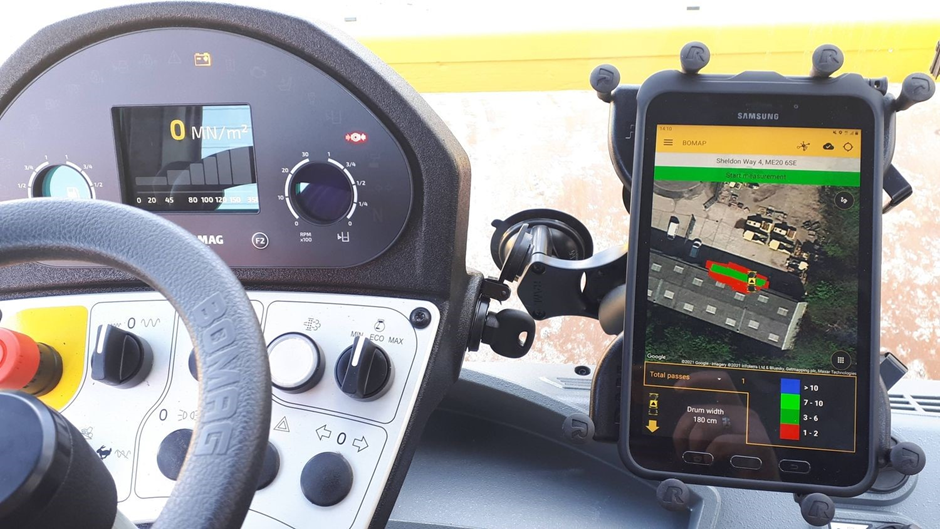If you’ve ever driven over a pothole-ridden road, you know the frustration that comes with it. Potholes not only cause damage to vehicles, but they can also be dangerous for drivers and pedestrians.
That’s why proper compaction in road construction is so important. Road builders can use the right methods and equipment to ensure that surfaces are as smooth and stable as possible. This keeps drivers safe and minimizes the amount of money needed to fix potholes down the road.
Compaction is an essential part of road construction. It ensures the pavement will be durable and can handle heavy traffic loads. Compaction results in a smooth surface that is less prone to cracking and potholes when done correctly.
Here we will look at what compaction is and why it’s important.

What is Compaction?
Compaction is the process of densifying a material by reducing the voids between particles. This can be done using different methods, depending on the type of material being compacted.
Compacting a hot mix asphalt (HMA) pavement aims to achieve the optimum air void content in place and provide a smooth, uniform surface.
Many activities can influence the proper compaction of an asphalt mixture, such as the mixture design, production operations, placement operations, and environmental influences.
Why is Compaction Important?
Compaction is the process of compacting soil or other material to create a surface that is as level and smooth as possible. This is important in road construction because paving needs a completely level surface in order to lay down a smooth layer of asphalt.
If the ground is not compacted properly, it can result in an uneven paving job that is more likely to crack and crumble over time.
Paving crews will use heavy machinery to roll over the ground to achieve proper compaction repeatedly. This process helps push out air pockets and creates a denser, more solid surface. Once the paving is complete, the road will be much smoother and more durable than if the ground had not been appropriately compacted first.
How Does Compaction Help to Create a Strong and Durable Road Surface?

A paving machine compacts the asphalt mix by applying pressure to the road’s surface. This process is essential to create a strong and durable road surface that can withstand the heavy weight of traffic on a daily basis.
The paving machine essentially squeezes the asphalt mix together, eliminating any air pockets that could cause the road to crumble over time.
In addition, the paving machine also helps to level out the road’s surface, creating a smooth driving surface for motorists. As a result, paving is an essential step in constructing any quality road.
What Risks Are Associated With Improper Compaction Methods?
Improper compaction of paving materials can lead to many problems, from cosmetic defects to structural failures. To avoid these issues, selecting the right paving equipment and following best practices for compaction is crucial.
Generally, paving should be compacted using a plate compactor or roller. Vibratory plate compactors are typically used for smaller jobs, while rollers are better suited for larger projects.
When operating a plate compactor, it is important to keep the machine level and to avoid overlapping areas that have already been compacted.
For rollers, it is essential to maintain a consistent speed and ensure that the entire width of the drum is in contact with the paving material. By following these guidelines, paving professionals can ensure that their projects are adequately compacted and free of defects.
Tips for Ensuring Your New Road Surface Lasts for Many Years to Come
If you are paving a new road, there are several things you can do to ensure that your new surface will last for many years.
- First, it is essential to choose a paving contractor who is experienced and reputable. Ask for references to make sure there are no unresolved complaints. Once you have found a paving contractor you trust, get a detailed estimate, including the cost of materials, labour, and necessary repairs.
- Next, selecting the right type of asphalt for your needs is important. A reputable asphalt specialist can help you choose the right mix for your climate and traffic conditions.
- Finally, follow the paving contractor’s instructions for caring for your new road surface. This may include restrictions on traffic and weight limits. By taking these steps, you can help ensure that your new road will provide years of trouble-free service.

In Conclusion
Road construction is a critical part of any municipality, and the process of compacting road base and sub-base materials is vital to the durability and strength of the finished surface.
At PAVES, in partnership with BOMAG, we understand the importance of proper compaction. As a result, we have developed the application to help contractors create strong road surfaces.
BOMAP enables real-time monitoring of soil and asphalt compaction results, regardless of the manufacturer. Our assistance system facilitates checking and documenting the degree of compaction on the construction site. The roller driver can see where the subsoil is optimally compacted or where more passing is needed.
If you want to learn more about our products or services, don’t hesitate to contact us today on +65 8569 9951 or email to us at sales@paves.com.sg . We would be happy to answer any questions you may have.



Recent Comments